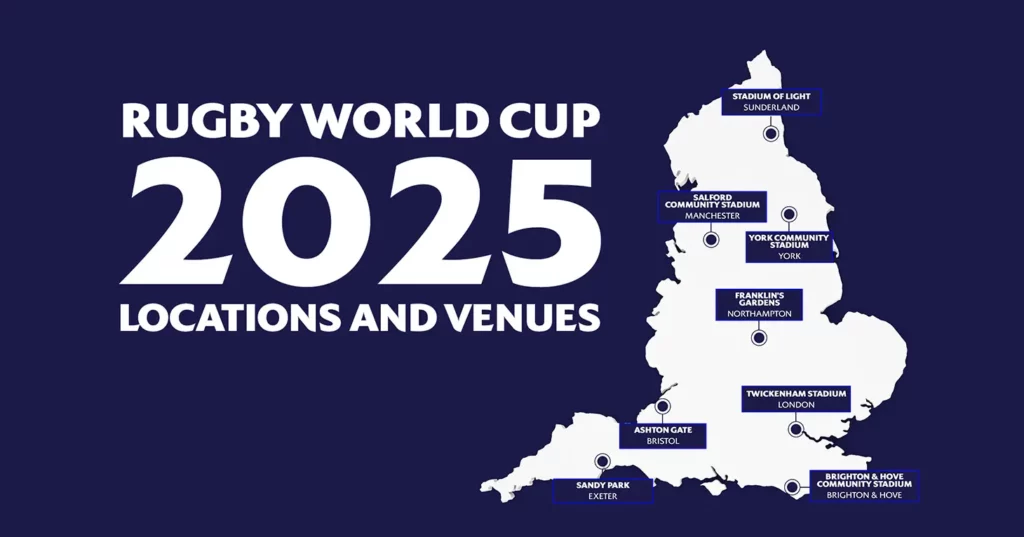The Women’s Rugby World Cup stands as the pinnacle of women’s rugby union, showcasing the finest talents from around the globe. Established in 1991, it has grown immensely in prestige and influence, evolving into a significant event in the sporting calendar. This article delves into the rich history and profound impact of the Women’s Rugby World Cup, highlighting its journey and significance in promoting women’s rugby worldwide.
Women’s Rugby World Cup Early Beginnings and Growth
The Inaugural Tournament (1991)
The first Women’s Rugby World Cup, hosted by Wales, took place in 1991. Despite initially being unsanctioned by the International Rugby Board (IRB), the tournament set the stage for future competitions. Twelve teams participated, with the United States clinching the inaugural title by defeating England 19-6 in the final. This victory began the USA’s significant presence in women’s rugby.
Official Recognition and Expansion (1998)
The 1998 tournament in the Netherlands marked a turning point, as it received official recognition from the IRB. This event saw 16 teams competing, the most significant number then, and introduced New Zealand’s dominance in the sport. They won their first title by defeating the United States in the final.
Evolution of the Tournament
Increasing Competitiveness and Global Reach
Over the years, the Women’s Rugby World Cup has grown in competitiveness and global reach. The number of participating teams increased, and the tournament attracted significant media attention. The 2002 World Cup in Spain and the 2006 edition in Canada further cemented the tournament’s reputation, with New Zealand continuing their winning streak.
Aligning with Major Events (2017)
The 2017 World Cup in Ireland was strategically scheduled a year earlier to align with the Commonwealth Games and the Rugby World Cup Sevens. This move aimed to enhance the visibility of women’s rugby on the global stage. New Zealand won their fifth title, solidifying their status as a powerhouse in women’s rugby.
Impact on Women’s Rugby World Cup
Promoting Gender Equality
In 2019, World Rugby dropped the gender designation from the tournament’s name, branding it simply as the Rugby World Cup. This move was part of a broader effort to promote gender equality and elevate the profile of women’s rugby. It demonstrated a commitment to equal recognition in women’s and men’s tournaments.
Inspiring Future Generations
The Women’s Rugby World Cup has played a crucial role in inspiring young girls to take up the sport. By showcasing the talents and dedication of female athletes, the tournament has helped break down gender stereotypes and encouraged greater participation in rugby among women and girls.
The 2025 Women’s Rugby World Cup

Host Selection and Venues
The 2025 Rugby World Cup, the tenth edition of the tournament, will be hosted by England. This will be the second time England has hosted the event, the first being in 2010. The game will feature 16 teams, expanded from 12 in the previous editions, reflecting the growing popularity of women’s rugby. Matches will be held in various venues, including Twickenham Stadium in London and the Stadium of Light in Sunderland.
Qualification and Teams
Sixteen teams will compete in the 2025 World Cup. Four teams automatically qualified by reaching the semi-finals of the 2021 World Cup, while others secured their spots through regional competitions and the 2024 WXV tournament. Notable qualifiers include defending champions New Zealand, hosts England, and emerging teams like Brazil, making their debut.
Conclusion
The Women’s Rugby World Cup has come a long way since its inception in 1991. From being an unsanctioned event to becoming a globally recognized and celebrated tournament, it has significantly contributed to the growth and popularity of women’s rugby. The game has provided a platform for showcasing exceptional talent and played a crucial role in promoting gender equality in sports. As we look forward to the 2025 edition in England, the future of women’s rugby looks brighter than ever, promising more exciting matches and inspiring stories.



No comment